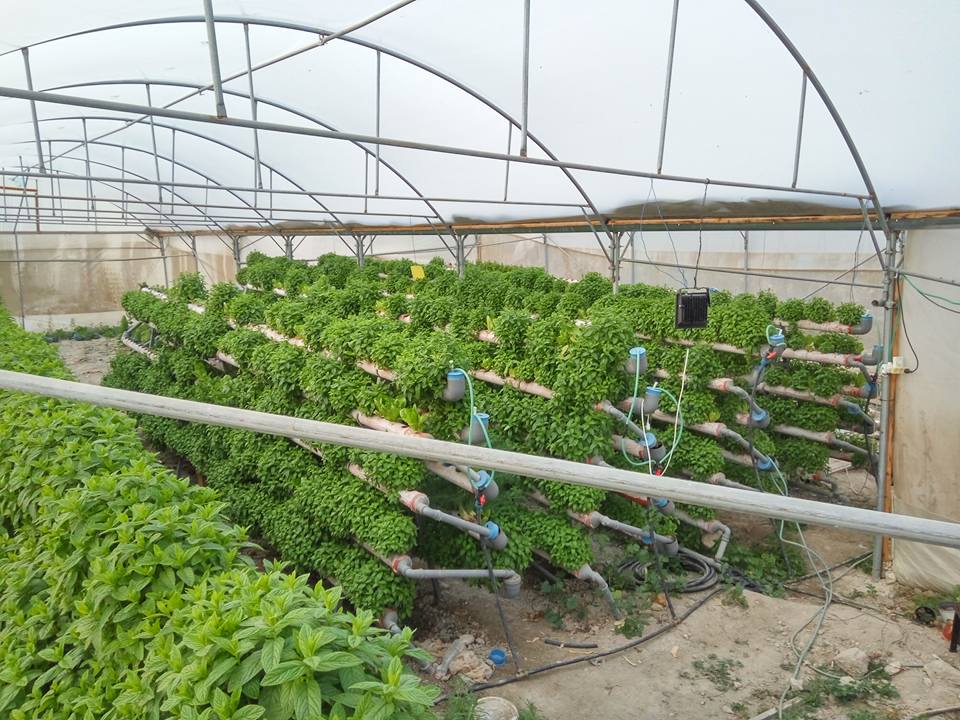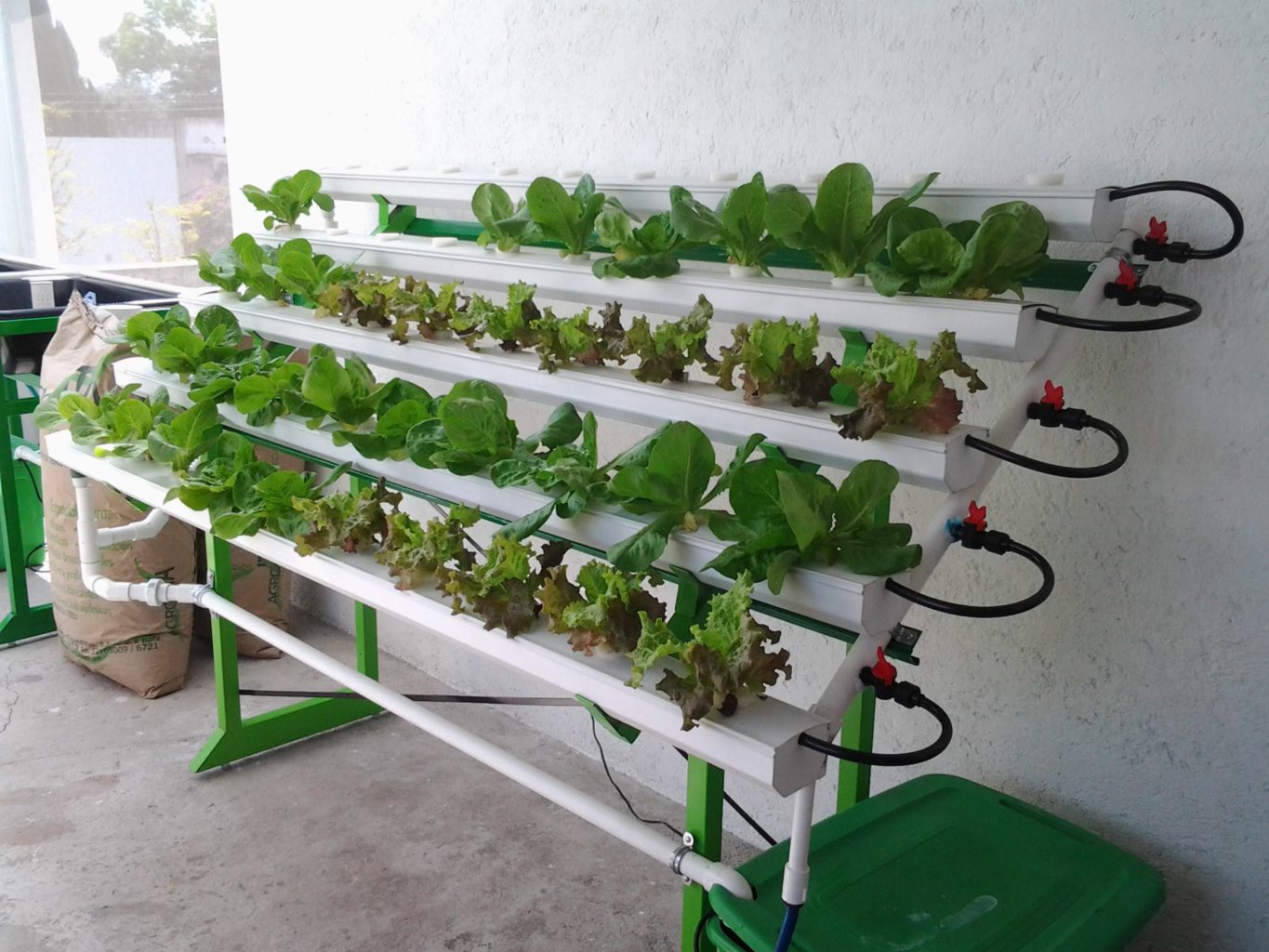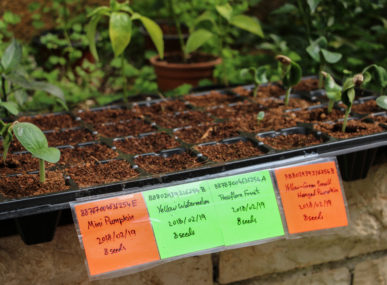In the name of experimentation, H2O Farm is testing various styles of hydroponics systems. There is the Nutrient Film Technique (NFT) where a submersible water pump moves water through a series of stacked pipes. Planted directly in the pipes, seedlings slurp up the water solution before the water is drained and cycled back into the pumping tank. When vegetables, fruits, and herbs are in full sprout, a functioning NFT system looks as though you are walking through a corridor of green walls.
Then there is the Dutch Bucket System, where water is distributed into buckets using an irrigation line, and drained into a main tank. Amarna is even experimenting with non-cyclical hydroponics systems to see what works. Ultimately, he hopes to develop a new hydroponics technique that integrates the best features of each system.
Amarna is also looking for investment to help him grow the size of H2O Farm to 1,000 square meters. “A difficulty with hydroponics is that the initial cost is very high,” says Amarna, who received a grant from The Palestinian Agricultural Relief Community to first start his operations.
Growing the culture of hydroponics in the West Bank:
While establishing other hydroponics companies could be seen as creating competition, Amarna views Palestine’s growing hydroponics scene as a success, not a threat. In addition to selling his crops, he relies on various consultancy and training activities as a way to raise awareness and funds for H2O Farm.
Since 2015, he has helped establish more than 10 farms across the West Bank, including a large operation that produces cut flowers. Amarna’s Made-in-Palestine nutrient solution is just one part of his offering. H2O Farm also provides the instruments, raw materials, seedlings, design work, and expertise needed to establish a hydroponics farm. To support this mission, H2O now has three other employees.
Amarna is also offering others the expertise they need. Working with his former university and other institutions, Amarna has created a training program to share his hydroponics experience. Offering training for students aged 10 to 14, Amarna is ensuring other young Palestinians discover hydroponics, just as he did during his studies. “Children at that age can be easily convinced to use more sustainable solutions, and think about the environment,” says Amarna for the reasoning behind the school workshops.
Amarna’s position as an expert in hydroponics will be affirmed at a global level in April, when he will be the only Palestinian competing in the Future Agro Challenge in Istanbul, Turkey. There, he will have the chance to pitch H2O Farm’s work and compete with 50 other people to become the world’s most recognized agripreneur.
With awareness-raising activities and a successful business example to scale, Amarna may be the first commercial hydroponics operation in Palestine, but he is certainly not the last.
Find out more about H2O Farm by visiting their Facebook page.
Photos: courtesy of Basel Amarna.







